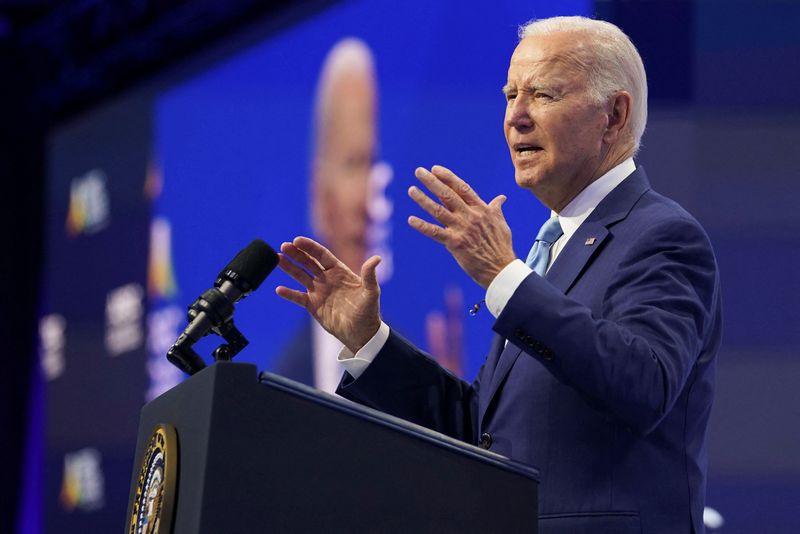By Leah Douglas
(Reuters) - The stopgap funding bill to keep the U.S. government open signed by President Joe Biden on Thursday includes funding through next September for farm programs and food assistance, but only a few months of funds for a key nutrition program for low-income mothers and their young children.
The spending bill passed by the House on Tuesday and Senate on Wednesday funds government functions through January 19 and includes a one-year extension of the 2018 bill farm bill, which expired on September 30.
Passed every five years, the farm bill costs about a half-trillion dollars and funds farm subsidies, crop insurance, nutrition assistance, conservation programs, and more.
Without the extension, some farm programs would have expired at the end of the year. Neither the House nor Senate agriculture committees has yet released their drafts of a 2023 farm bill.
The extension means that the more than 41 million participants in the Supplemental Nutrition Assistance Program (SNAP) will continue to receive benefits through Sept. 30.
However, the spending bill only funds the Women, Infants, and Children (WIC) nutrition program through Jan. 19 because WIC is not included in the farm bill.
WIC provides food, breastfeeding support, and other services to 6.7 million low-income mothers and young children, according to the U.S. Department of Agriculture, which administers the program.
Congress will need to act quickly to avoid a WIC funding shortfall that could see benefits shrink or new applicants turned away, said Georgia Machell, interim president and CEO of the National WIC Association, in a statement.

"Either outcome would be unnecessary and unacceptable," Machell said.
Millions more Americans were food insecure in 2022 than in 2021, recent USDA data showed, underscoring prior reports from the Census Bureau and food banks that showed rising hunger since the pandemic.